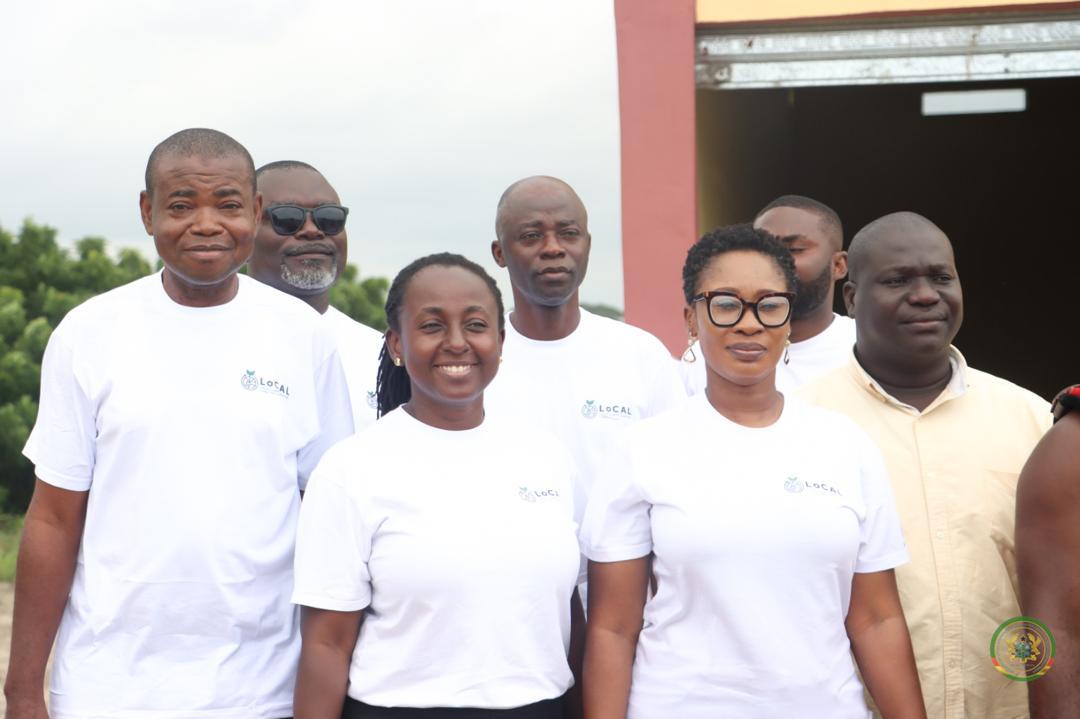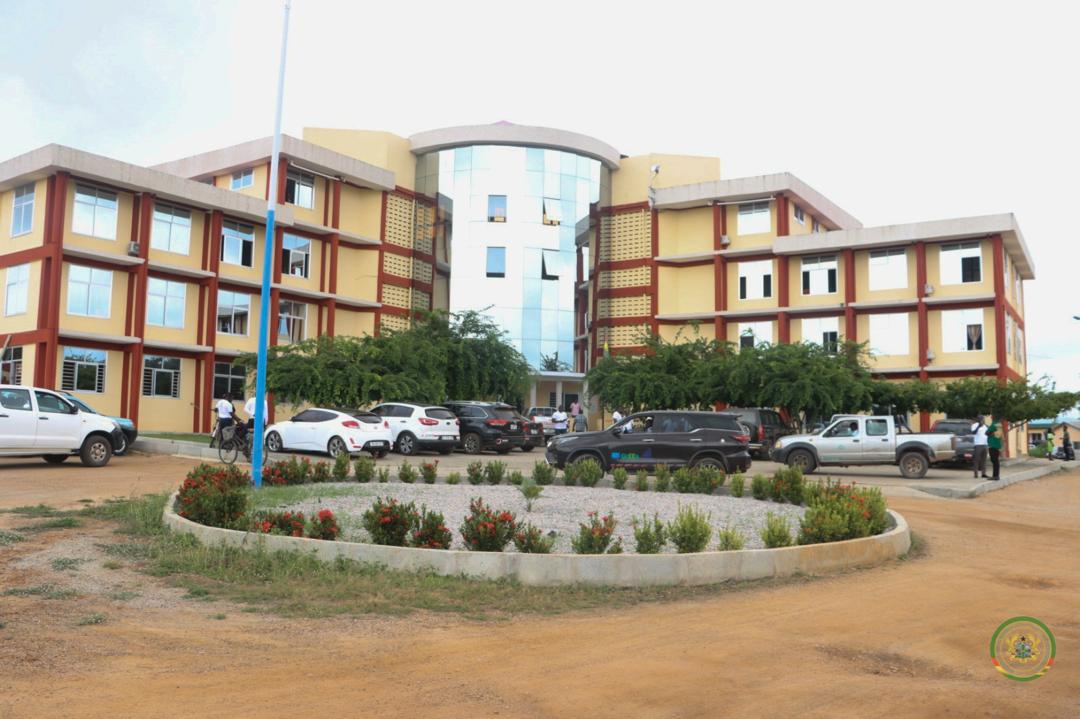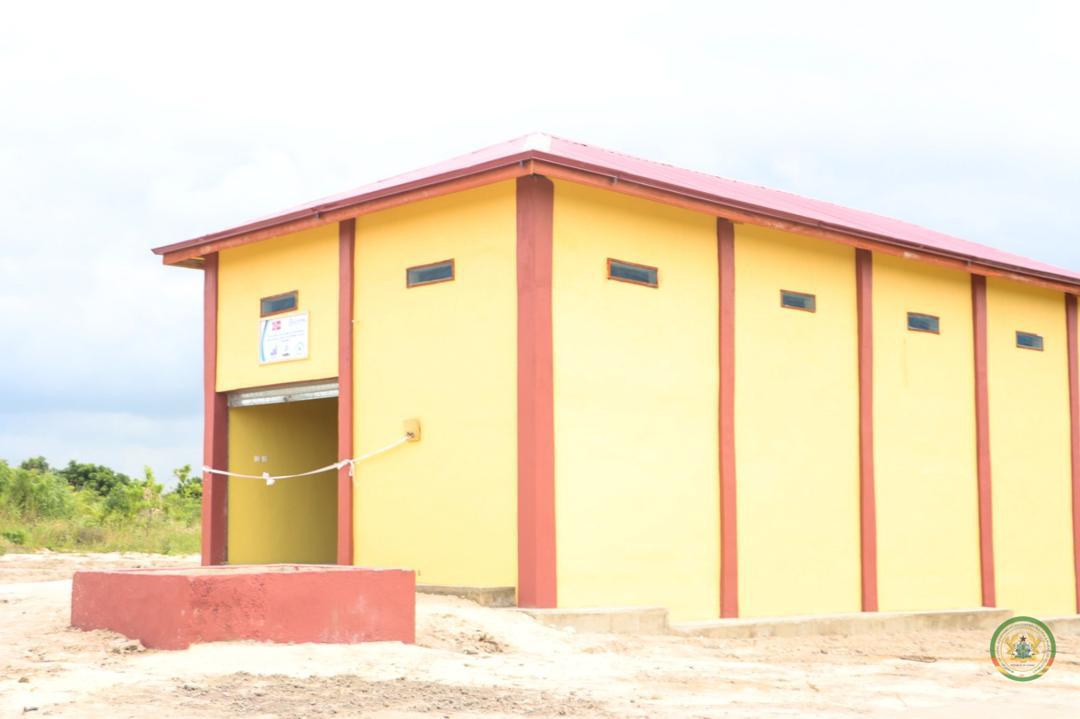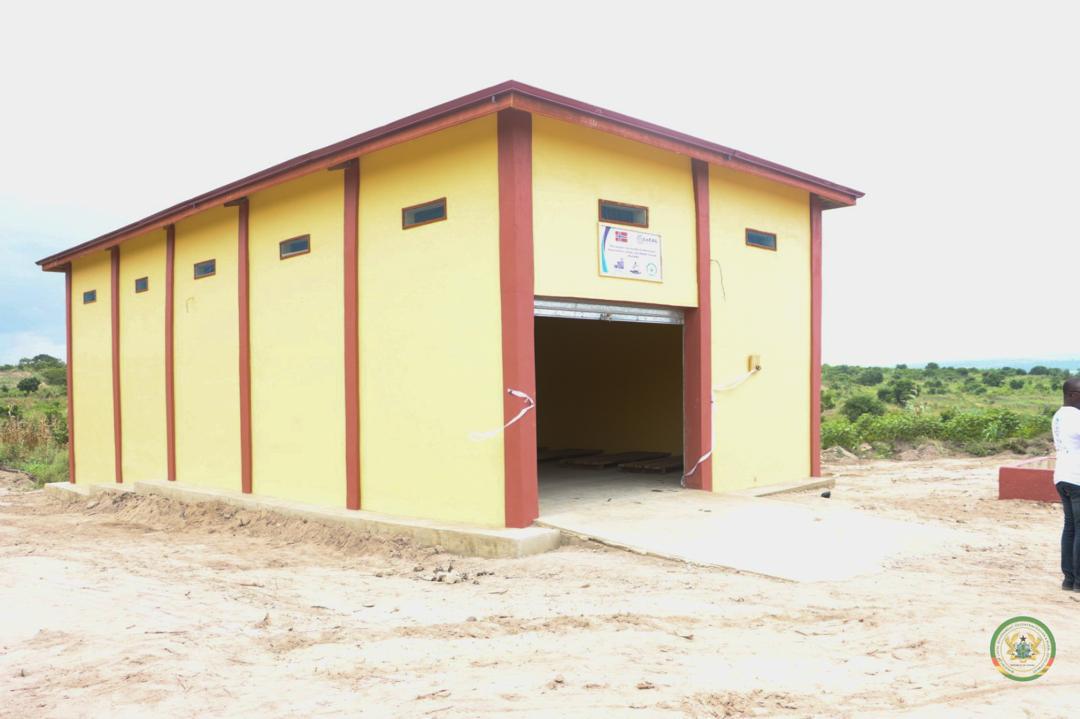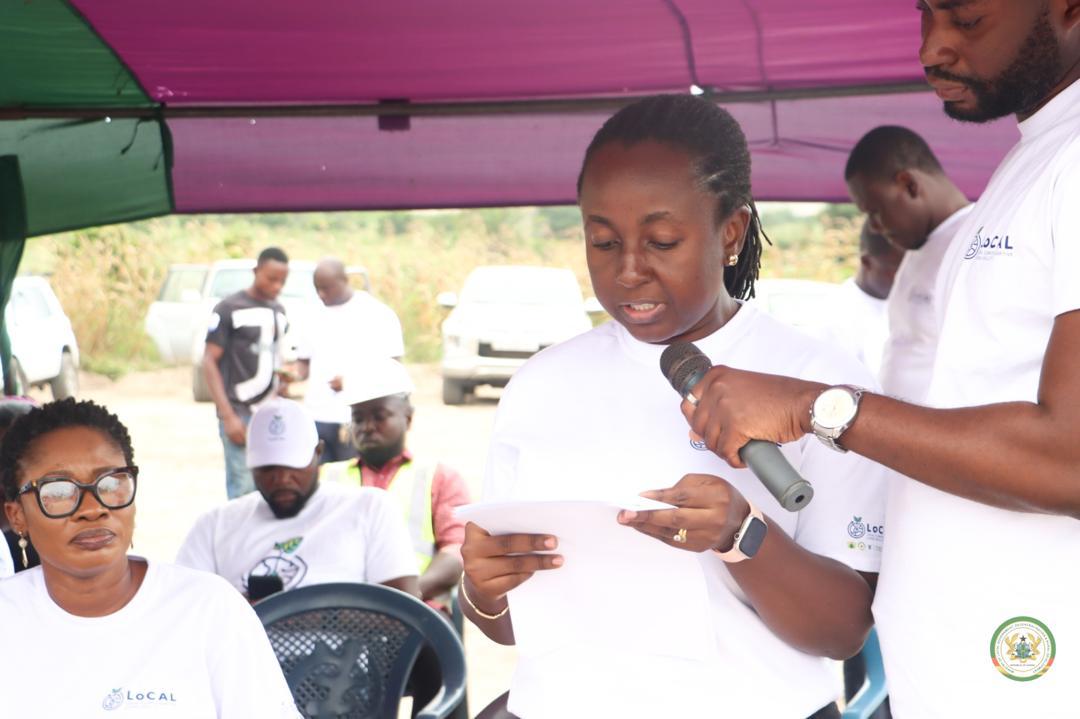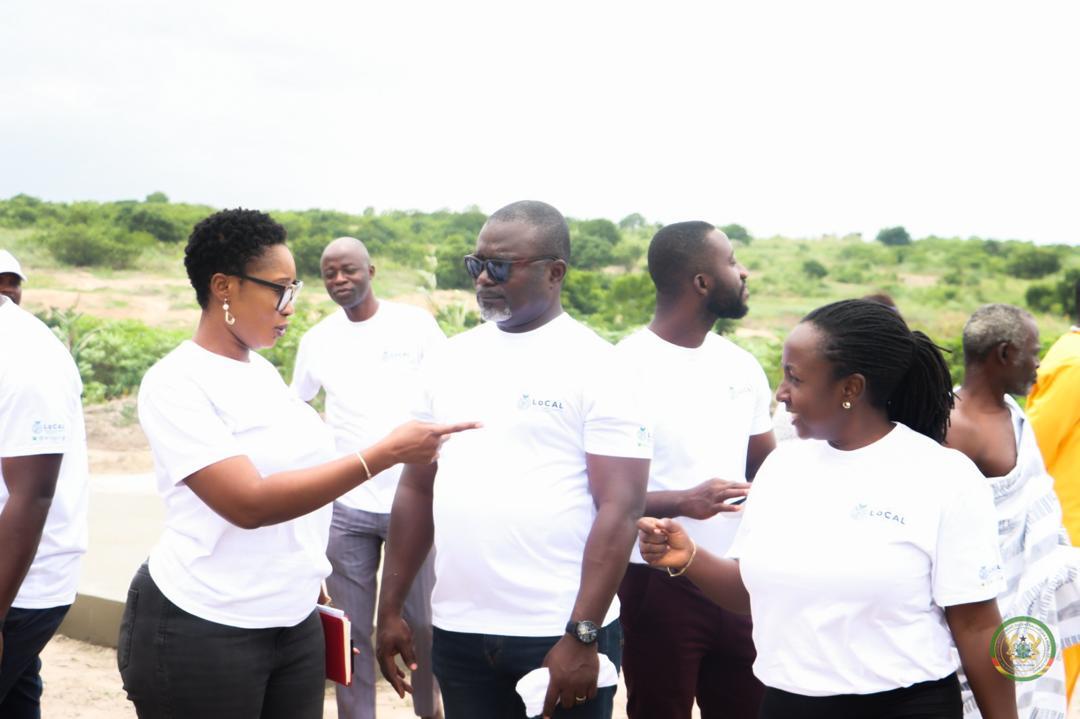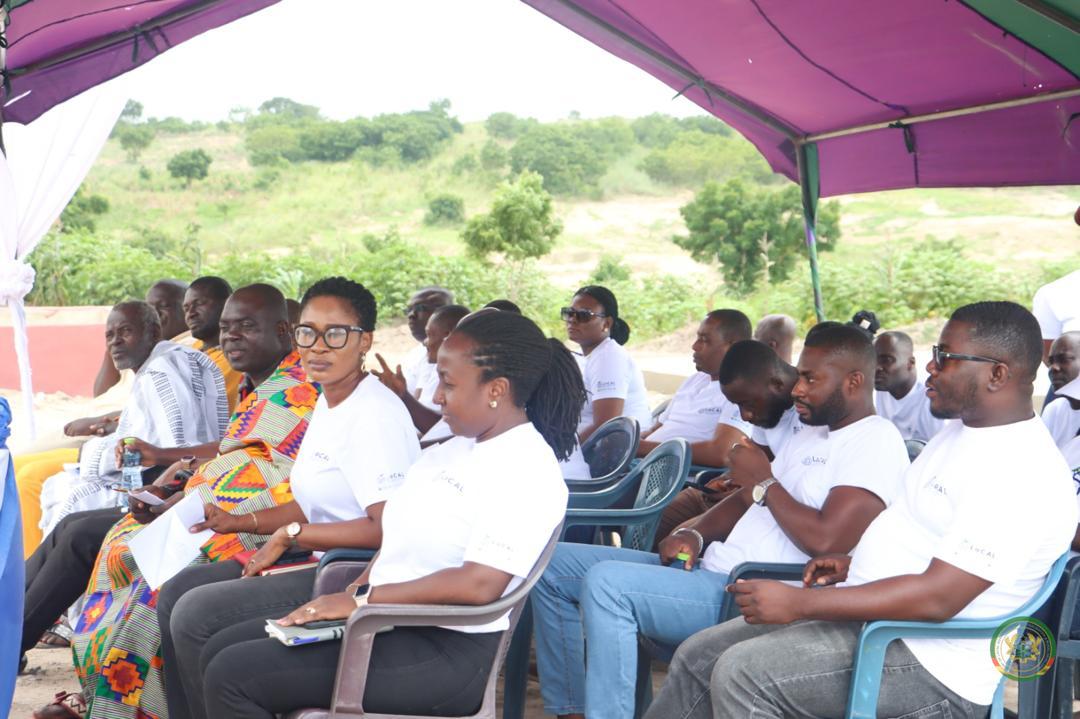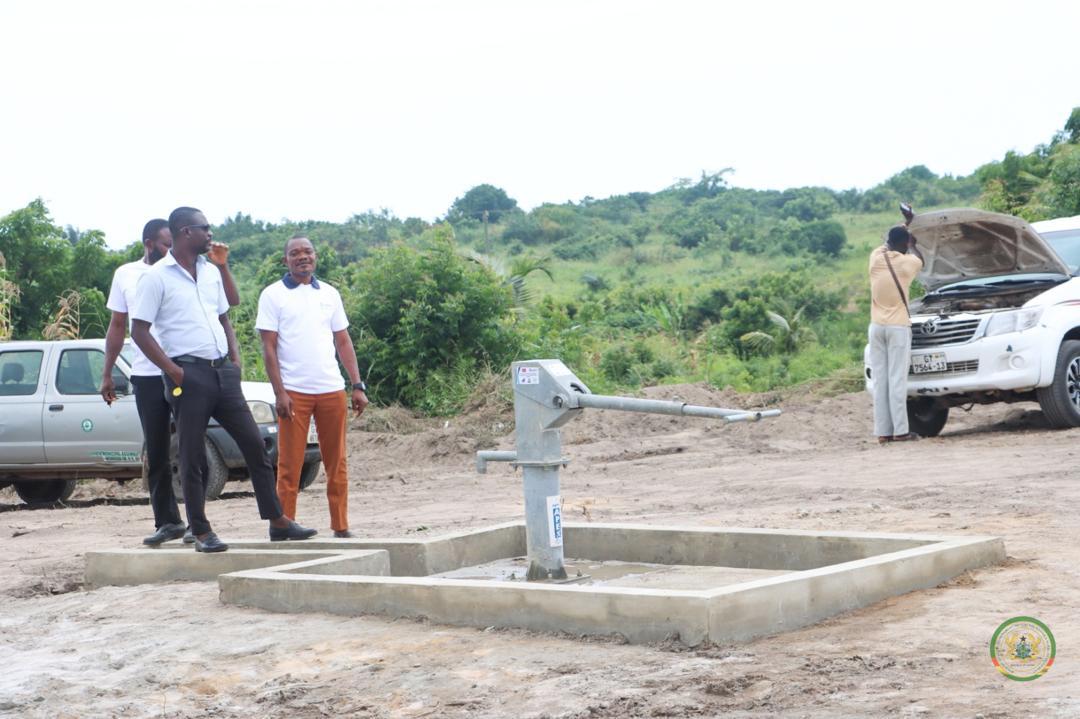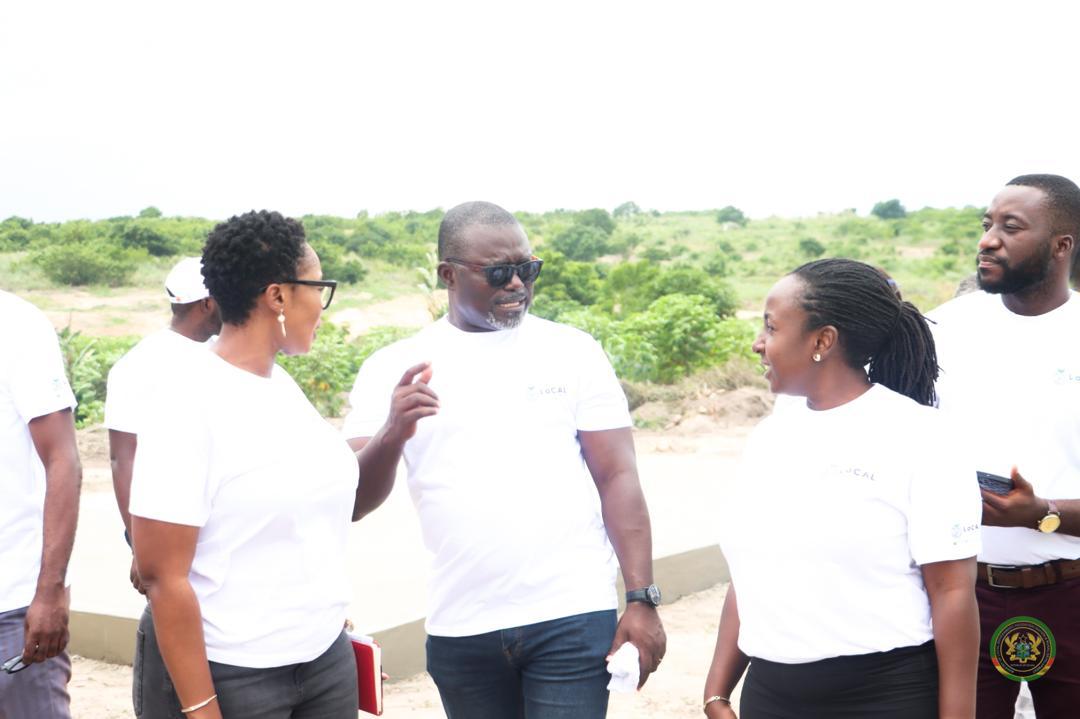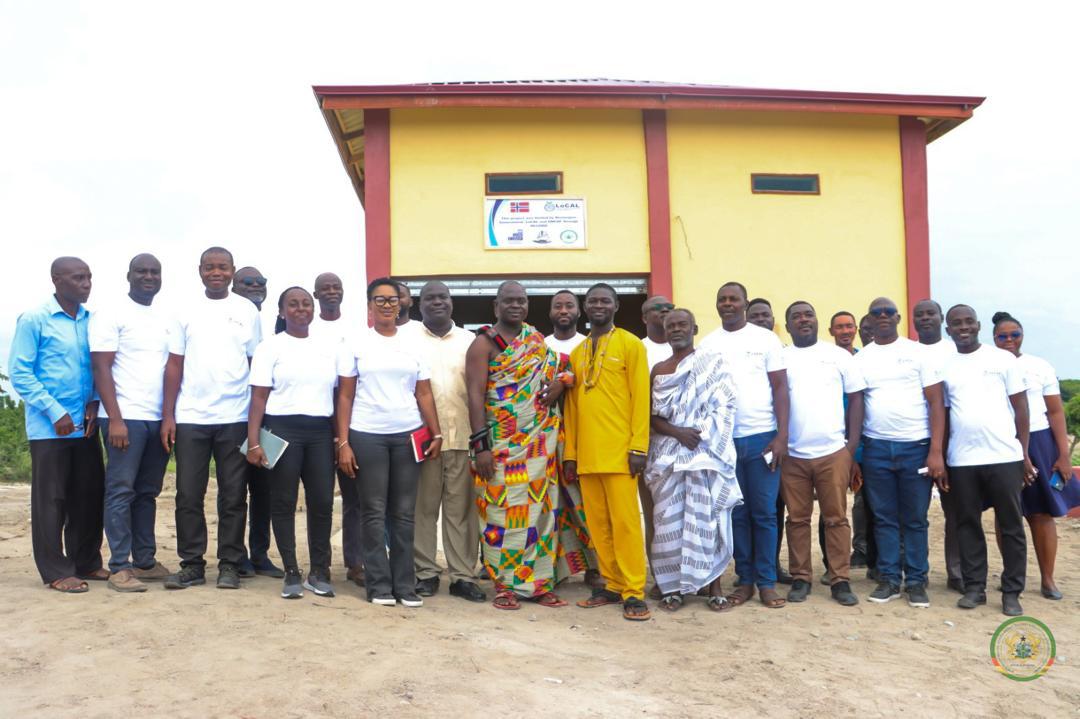The Nsuekyir community, in the Effutu Municipality in the Central region has benefited some projects under the first phase of the Promoting Green and Climate Resilient Local Economies in Ghana – Applying Circular Economy and Climate Smart Agriculture Principles and Solutions to Local Development Pathways (Local-ACE) Project, which is being implemented by the Ministry of Local Government, Decentralisation and Rural Development (MLGDRD) and funded by the Norwegian Government and the United Nations Capital Development Fund (UNCDF).
The projects which were commissioned and handed over to the Nsuekyir community on Tuesday, August 20, include the construction of a Cassava Processing Site, and Drilling and Provision of Water Facilities.
In a statement read on his behalf, the hon. minister for Local Government, Decentralisation and Rural Development (MLGDRD), Martin Adjei-Mensah Korsah acknowledged the unwavering commitment of Partners, particularly in championing the goals of the LoCAL-ACE initiative, which is intended to mitigate the impact of climate change, promote circular economy, climate smart agriculture and support for sustainable livelihood interventions that benefit the low-income women and youth.
These interventions, according to him have been expressed in efforts made towards building resilience of the vulnerable and marginalise individuals and communities using the LoCAL, a mechanism developed by UNCDF and the MLGDRD as a global standard initiative that focuses on financing locally led adaptation efforts in the country.
The LoCAL-ACE is an extension of the Promoting Green and Climate Resilient Local Economies in Ghana (LoCAL) mechanism, which has for the past 8 years, been employed to secure funding for various micro-projects that have led to improved water supply through provision of boreholes, provision of footbridges and culverts, setting up greenhouse nets, conducting awareness campaigns to educate the local communities, particularly women and farmers, and enhancing their ability to withstand the impacts of climate change and various crises.
SOURCE: Sandra Owusu Asamoah
(Public Relations Unit MLGDRD)

